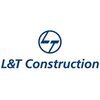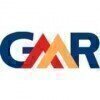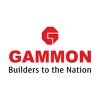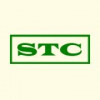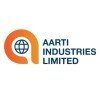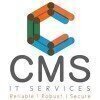4 SPB Projects and Consultancy Jobs

Instrumentation Engineer
SPB Projects and Consultancy
posted 2mon ago
Job Role Insights
Flexible timing
Key skills for the job
Job Description
- As an Instrumentation Engineer, your primary role is to design, develop, install, and maintain instrumentation systems used in various industrial processes and systems
- You will be responsible for ensuring accurate and reliable measurement, control, and monitoring of process variables such as temperature, pressure, flow, and level
- Your expertise in instrumentation engineering will contribute to the safe and efficient operation of equipment and processes
Responsibilities:
- Instrumentation System Design: Design and develop instrumentation systems and control strategies for industrial processes
- Select appropriate instruments, sensors, transmitters, and control devices based on project requirements and specifications
- Installation and Calibration: Oversee the installation, configuration, and calibration of instrumentation systems and devices
- Ensure compliance with industry standards, safety regulations, and project specifications
- System Integration: Collaborate with multidisciplinary teams, including process engineers, electrical engineers, and automation specialists, to integrate instrumentation systems with overall process control and automation systems
- Troubleshooting and Maintenance: Identify and resolve technical issues related to instrumentation systems, including troubleshooting faulty devices, diagnosing measurement inaccuracies, and implementing corrective actions
- Develop and execute maintenance plans to ensure optimal performance and reliability
- Safety and Compliance: Ensure compliance with safety regulations and industry standards for instrumentation systems
- Conduct risk assessments and implement safety measures to mitigate hazards associated with instrumentation installations and operations
- Documentation and Reporting: Prepare detailed technical documentation, including specifications, engineering drawings, and operating procedures for instrumentation systems
- Generate reports on system performance, maintenance activities, and compliance
- Project Management: Participate in project planning and execution, providing expertise in instrumentation engineering
- Collaborate with project teams to define scope, timelines, and resource requirements
- Monitor progress and ensure timely completion of instrumentation-related tasks
- Continuous Improvement: Stay updated with advancements in instrumentation technology and industry best practices
- Identify opportunities for improvement in instrumentation systems and processes, and propose and implement innovative solutions
- Training and Support: Provide training and technical support to operations and maintenance personnel regarding instrumentation systems, troubleshooting techniques, and best practices for efficient operation
Technical Skills:
- Strong knowledge of instrumentation principles, measurement techniques, and control systems
- Familiarity with various instruments and devices such as sensors, transmitters, analyzers, and control valves
- Proficiency in using instrumentation design software and tools
- Safety and Compliance: Understanding of safety regulations, standards, and practices applicable to instrumentation systems, such as hazardous area classification, SIL (Safety Integrity Level), and functional safety
- Knowledge of relevant codes and standards (eg, ISA, IEC, API)
- Problem-solving Abilities: Excellent analytical and problem-solving skills to diagnose and resolve issues related to instrumentation systems
- Ability to interpret data, troubleshoot complex problems, and implement effective solutions
- Communication Skills: Strong written and verbal communication skills to effectively collaborate with cross-functional teams, prepare technical documentation, and present findings and recommendations
- Teamwork and Collaboration: Ability to work effectively in a multidisciplinary team environment
- Strong interpersonal skills to foster positive working relationships with colleagues, clients, and vendors
- Attention to Detail: Meticulous attention to detail to ensure accuracy and precision in instrumentation system design, installation, and calibration
- Adaptability: Ability to adapt to changing project requirements and priorities
- Flexibility to work in dynamic industrial environments and manage multiple tasks concurrently
Employment Type: Full Time, Permanent
Read full job description What people at SPB Projects and Consultancy are saying
What SPB Projects and Consultancy employees are saying about work life
based on 7 employees
Flexible timing
Within country
Day Shift
Similar Jobs for you
Recently Viewed
Share an Interview
How was your last interview experience?







